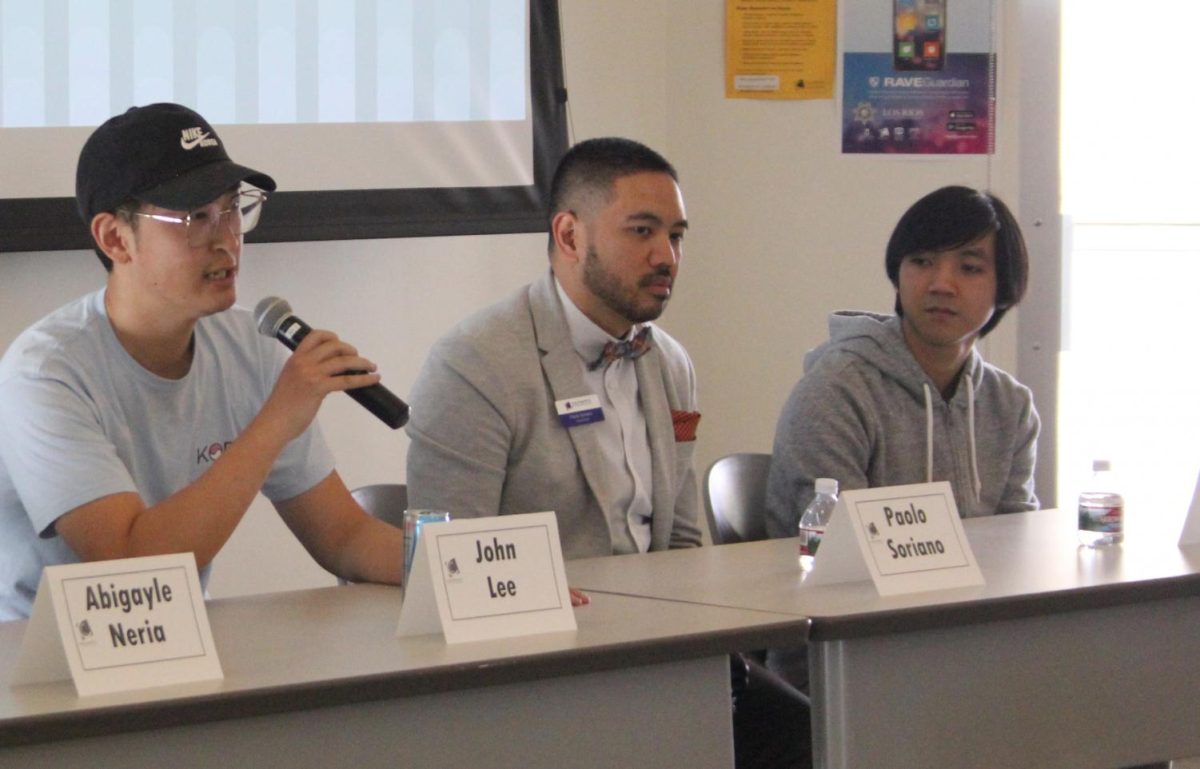Event tackles model minority stereotype
API student panelists spoke about the “model minority” myth and how it affects them in their everyday lives.
Asian Pacific American Heritage Week started off with a panel discussion workshop on “The Model- Minority Myth in Education,” which took place on Monday in the Winn Center 150.
Student Success and Support Program Specialist Jennifer Nishizaki-Ngo spoke about her research on the socially-constructed idea that Asian Americans are naturally gifted scholars that also have success in the workforce.
The idea that Asians are the model minorities has been passed down from their history in America.
“In American history, Asians were perceived as forever foreigners,” said Nishizaki-Ngo. “There was a fear that new immigrants were a threat to white society.”
Students like Abigayle Neria, a 19-year-old peer mentor and psychology major, said that she felt ashamed for not getting into a university right out of high school because it was expected of her based on her ethnicity.
“Most Asian students are seen as having over a 4.0 GPA because they take AP and honors classes,” said Neria. “I didn’t see myself as academically strong because I finished high school with a 2.8 GPA and always got the comments of ‘aren’t you Asian?’”
Amongst the group was John Lee, a student personnel assistant, who said that the pressure from their culture comes from the community wanting the fame, money and honor from their children doing well.
“You can be shamed for fitting or not fitting the stereotype of becoming that doctor, engineer or lawyer that you’re expected to be,” said Lee. “When I was at UC Berkeley studying sociology my mother insisted I switch to computer science because there’s a lot more money in that field.”
Furthermore, 18-year-old computer science major Christopher Keokot said the model minority myth has misrepresented the diversity of Asian ethnicities by synchronizing them all into one group or grouping them with “whites and Caucasians” as a majority instead of the minority.
“Academic statistics shows that Asians are not even considered people of color and this creates an idea that they are superior professionally and academically to others,” said Nishizaki-Ngo.
Equity Counselor Paolo Soriano said that more people need to be educated about the significant damage that the model minority structure creates between other Asians and against other people of color.
“This idea has been a deep rooted issue throughout our history,” said Soriano. “We are essentially being used as a tool to create wedges between racial dynamics by being separated as above everyone else.”
Because Cosumnes River College does not have an Asian and Pacific Islander Club for students to connect, Nishizaki-Ngo said that API students who fall in the subcategories and are in need of guidance pertaining to their studies and solace are encouraged to reach out to herself, Lee, Neria and Soriano.

